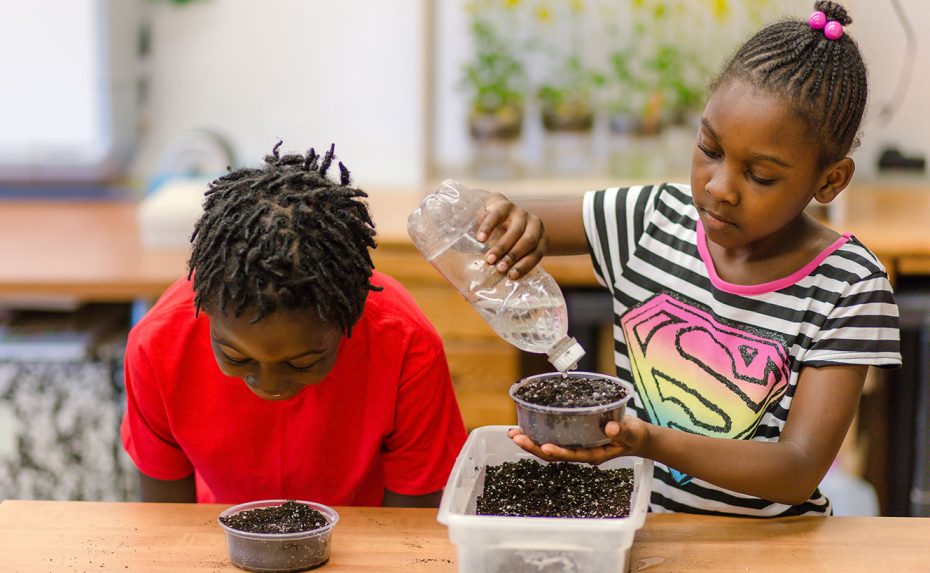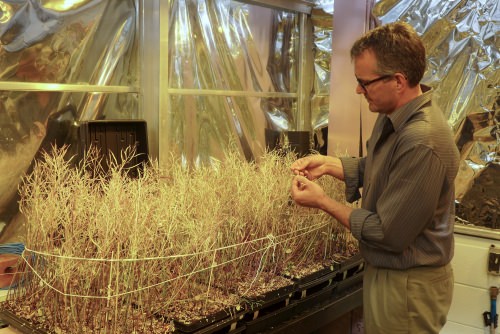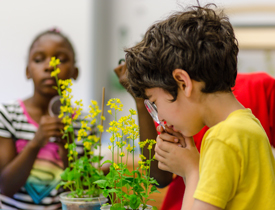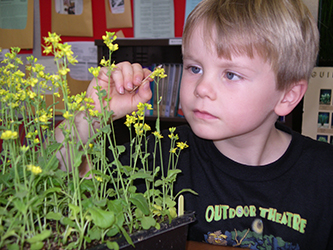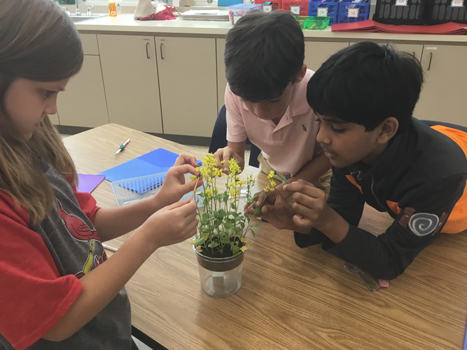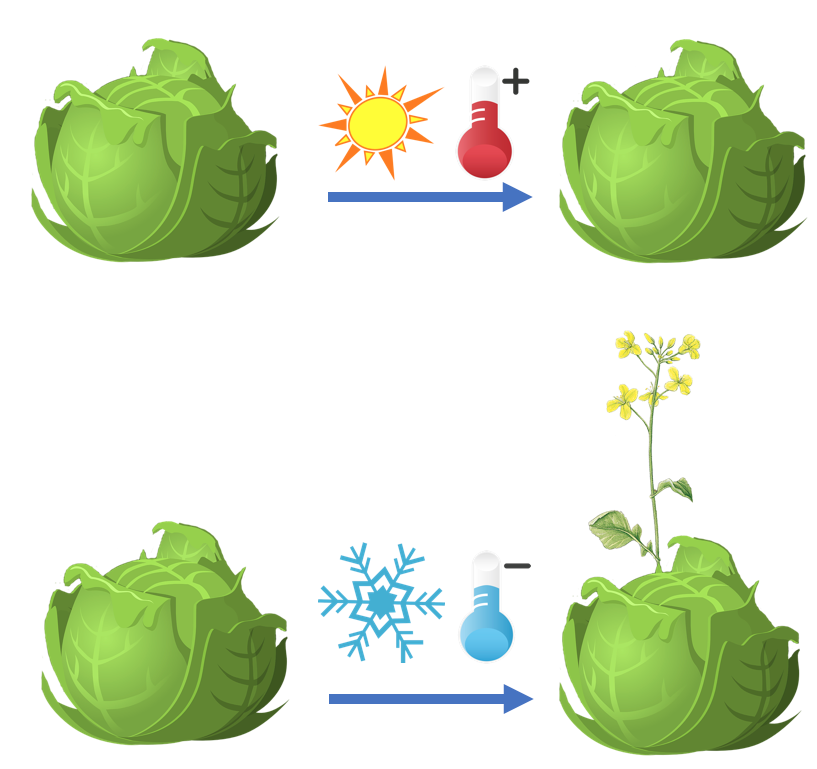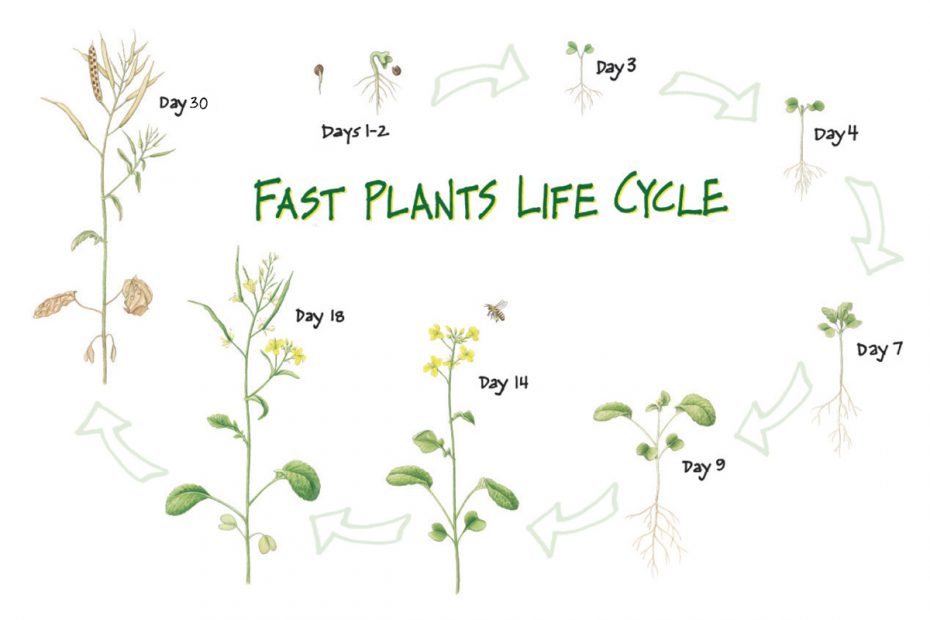Timing Fast Plants Lessons Effectively: How Strategic Planting Dates Help Students Witness Every “Aha!” Moment Timing Fast Plants lessons effectively is one of the simplest ways to elevate student learning with Wisconsin Fast Plants®. Because these plants move through their life cycle so quickly, when you plant matters! By choosing a planting start date that aligns with your instructional goals, …
CTE: Plant Systems Career Pathway cultivates success with Fast Plants!
Future Depends on Plant Systems careers In the ever-evolving landscape of agriculture and plant sciences, the need for hands-on experiences growing plants has never been more critical. Career Technical Education (CTE) courses in the Plant Systems Pathway are foundational for future professionals in a wide variety of plant science fields, and one valuable addition that stands out is the incorporation …
Hands-on learning with Fast Plants grows minds-on learning
While occupied by hands-on Fast Plants tending tasks in my role as co-director of the Wisconsin Fast Plants Program, I often listen to podcasts. Spoiler alert: I love podcasts about plants! No surprise, one of my favorites is Matt Candeias’ podcast, In Defense of Plants. Beyond my fascination with the wide array of topics Matt dives into in his podcasts, I appreciate …
Growing plants inspires a botanical path
Growing plants inspires everything from a solid appreciation for plants to a lifelong passion. Equally important to inspiration, growing plants can be key to developing citizens literate about our dependence on plants for life. With this in mind, we share here Daniel Murphy’s firsthand account of his experiences growing plants and becoming–in his words–“a bona fide plant nerd.” Daniel publishes a weekly blog titled, Awkward Botany, sharing his …
My first experience teaching with Fast Plants
Classroom teacher, Julie LaConte, tells about her first experience teaching with Fast Plants in this guest post. Thank you, Julie, for sharing your insights and experiences! Fall 2019 was my first experience teaching with Fast Plants, and plants are one of my least favorite topics to teach. After 18 years as an upper elementary and middle school science teacher, I have had my fair share …
Flowering and the Role of Vernalization
A plant’s transition from vegetative growth to reproductive/flowering growth is a complicated process. In order for a plant to complete its life cycle and produce viable seeds, flowering must occur under conditions that encourage seed production. Plants are able to detect a variety of internal and environmental signals that influence floral development. Internal signaling is via production and diffusion of …
Teaching Hands-On Life Science Using Wisconsin Fast Plants
Wisconsin Fast Plants are perfect for teaching life science in the classroom! Initially developed as a research tool at the University of Wisconsin – Madison, Fast Plants have 30+ years of use as a model organism in K-12 education. This post is an introduction to teaching with Fast Plants, with links for easy access to materials that support developing and implementing hands-on life science …
Teaching with the Fast Plants life cycle
Life Cycle Investigations Life cycle investigations with Wisconsin Fast Plants® provide rich context for teaching and learning a broad range of concepts. Though some think of the plant life cycle as limited to elementary level lessons, investigations and observations made during the Fast Plants life cycle are used worldwide at middle, high school and college levels, too. Crosscutting Concepts and life cycles Try to …

